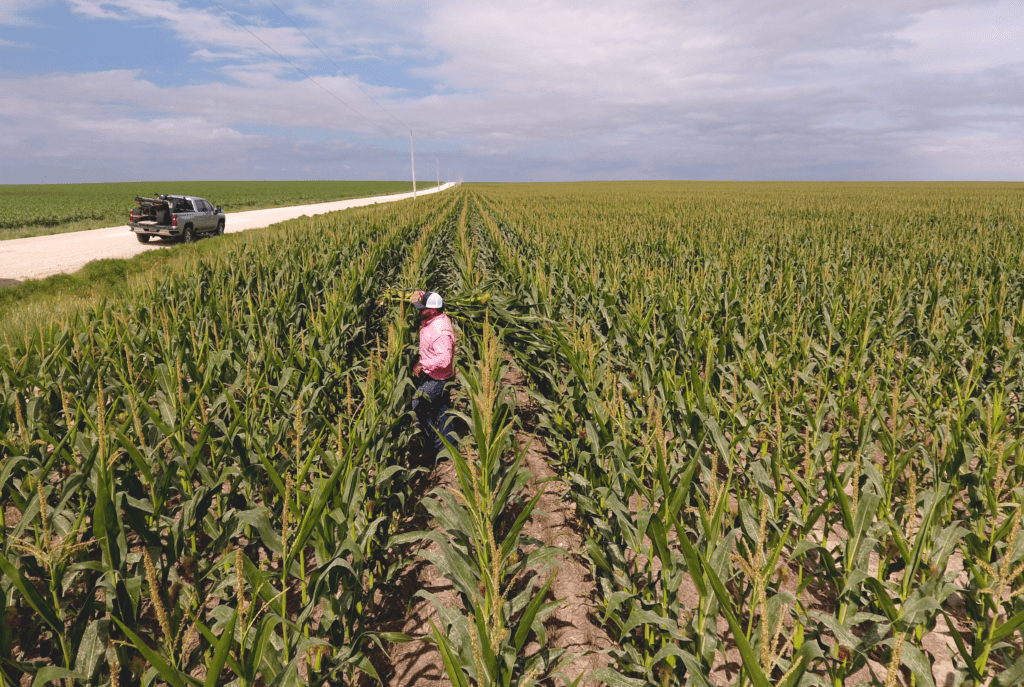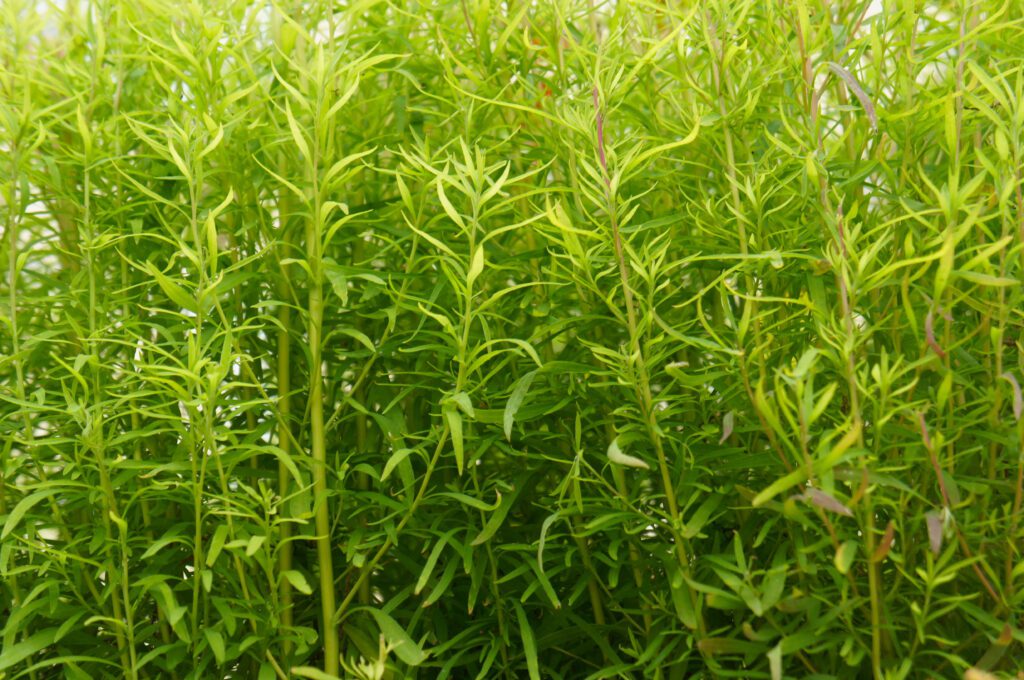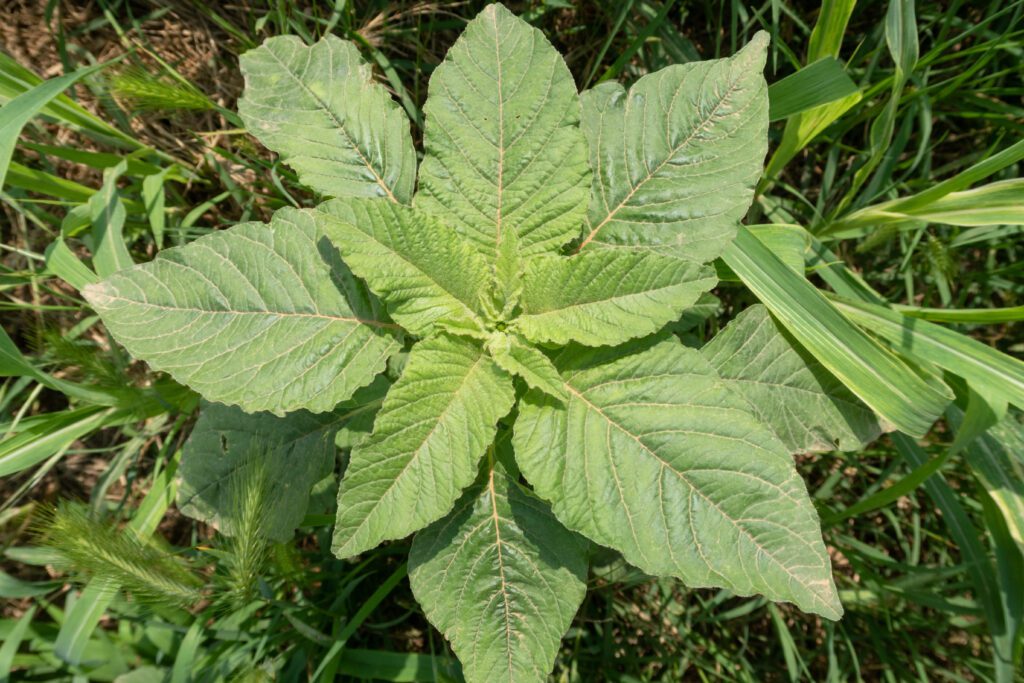
Agricultural consulting services provide strategies to manage the challenges found on Kansas farms and optimize fields for higher yields and ROI. Red Barn Enterprises knows firsthand how weather events, field characteristics, and hard-to-kill weeds impact profitability.
Combating Common Challenges for Kansas Farmers With Agricultural Consulting Services
Abiotic stress from environmental factors, such as weather, insects, and disease, has a compounding effect on crop yields. The combined effect makes farming difficult without a plan for success.
Weather
The weather in Kansas brings drought, heat, excess rain, and wind.
- Drought robs plants of much needed water.
- Extreme heat can cause plant cells to rupture.
- Excess rain washes away nutrients and crop protection products.
Any of these alone could result in a product loss, but when combinations hit, the loss can be devastating.
Soil Health
Soil health can be impacted by weather events. Moisture loss from drought dries the soil out and creates structural problems. The spaces between soil particles become smaller, and the soil compacts. Top layers can eventually crumble, making it easier for wind erosion to occur. For fields impacted by drought, excess rain can lead to flooding and water erosion as the soil struggles to absorb the water into the smaller pores.
Besides the weather effects of water and wind erosion, poor soil fertility can negatively impact crop yield. Salinity and nutrient imbalances make crop growth difficult. Fertility imbalances can be addressed through changes in crop management or the addition of nutritional products. But without action, crops struggle, and this lack of competition opens the way for another challenge—weeds.
Weeds
Kansas farmers grapple with invasive plants that take over fields and rob crops of nutrients and water. Increases in no-till farming practices and herbicide resistance have led to an increased percentage of farm budgets dedicated to controlling weeds. Two species are especially problematic—Kochia and Palmer amaranth, or pigweed.
- Kochia: Salinity, drought and heat are no obstacle for this weed. They take over fields that are problematic for crop growth. Mature plants will break off at the stem and become tumbleweeds, spreading seed over wide areas. Each plant can produce over 15,000 seeds which germinate or die within two years.

- Pigweed/Palmer Amaranth: Pigweed is fast-growing and easily outcompetes crops for nutrients, water, and sun. Infested fields can lead to 90% or higher yield loss. This species has male and female plants. A single female plant can produce over a million seeds. Not only does pigweed produce copious amounts of seed, they are easy to spread and have the ability to germinate years later. Pigweed can even transfer seed to equipment. Any equipment that has come into contact with pigweed should be thoroughly cleaned to prevent accidental spread to other parts of the farm and beyond.

The best approach to controlling both species is prevention, as these plants are extremely hard to kill. Strategies to control them are pre-emergent herbicide application and frequent monitoring. Because of increasing herbicide resistance, a mix of products should be used, and escapes should be physically removed before seeds can spread. Pre-emergent herbicides are more effective with adequate soil moisture as the weed’s roots take in the chemical with the water. Products should be selected to minimize risk to operators and crops.
Partnering With Red Barn Enterprises for Agricultural Consulting Services
Red Barn Enterprises focuses on building a plan that is structured for adaptive decision-making. Their Max Yield System provides long-term planning strategies and pre-planned options for events and conditions that are most likely to occur. Using historical production data, field samples, and monitoring, their experts help farmers develop seed and product choices to optimize the productivity of each field. The Max Yield System relies on early planning to get ahead of weeds and probable weather events.
Partnering with Red Barn for agricultural consulting services provides a field-by-field approach to managing the challenges found on Kansas farms. Their strategies and product suggestions come from local experience and are tailored to target the specific obstacles each customer faces. Through the Max Yield System, growers can take control of their profitability.
Getting Started With Red Barn Enterprises
To maximize your farm’s potential and effectively tackle the unique agricultural challenges in Kansas, partnering with Red Barn Enterprises is your next strategic step. Our expert agricultural consulting services are designed to enhance your farm management practices, optimize your crop yields, and increase your return on investment. Whether it’s combating stubborn weed species, addressing soil health, or developing proactive strategies against unpredictable weather patterns, our team is equipped with the knowledge and experience to guide you.
Ready to Start? Take the first step towards transforming your agricultural operations by contacting us today. Our consultants are ready to tailor a comprehensive plan that fits the precise needs of your fields. Don’t let another season pass by without maximizing your farm’s potential. Contact us now and see how Red Barn Enterprises can make a difference with our specialized agricultural consulting services.
Transform Your Operation
Connect with our agriculture experts today to maximize your farm’s potential and effectively tackle the unique agricultural challenges in Kansas!

Leave a Reply